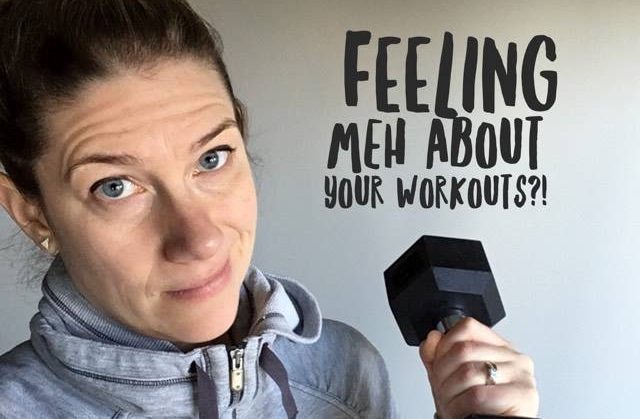It happens. And sometimes it’s just a case of needing to shake things up to get re-inspired with a new program, a new schedule or a shift in gears. But what if that feeling of MEH doesn’t subside? And you just can’t seem to get into your workouts? You’re feeling tired all the time. You seem to catch every bug flying around. Your muscles are always sore from your workouts (aka your recovery isn’t great). You’re struggling with more and more injuries, and you’re resting heart rate is elevated. If you’re experiencing all of these you may be overtrained.
What does it mean to be overtrained?
Simply put your body is heading to burnout. It’s not getting adequate rest. Over training can simply be doing the same thing with no variations for too long. But it can also be from doing too much high intensity or volume of work without adequate rest. Important note: you don’t have to be specifically “training” for something to be over-trained. I see this ALL THE TIME in fitness folks too. People who are doing HIIT & pushing hard at the gym daily with NO rest days. This is equally hard on the body!
How can you prevent overtraining?
- Follow a properly periodized program. ALL well designed fitness programs should incorporate recovery days & recovery weeks. Yes, you read that corerctly. Recovery weeks. During your recovery weeks you back off your intenity & duration while still maintaining most of your frequency. This gives the body time to recover & adapt to training.
- ACTUALLY follow the program. If your program lists a recovery workout (say a light yoga or a day off) ACTUALLY take it. I know it’s hard to believe but REST is when your body acutally makes the most gains. The work you do in training is breaking down your muscles – the REST is when they rebuild. Take your rest days. Do NOT replace them with anothe rhard workout.
- Listen to your body. Be aware of your body and your symptoms. Take your morning resting heart rate. Track it even (this is where wearable trackers can be super convenient). If your morning resting heart rate is elevated, it may be time (even if your schedule doesn’t list it) to take a recovery day (a few days) or even a week.
I think this is me…now what?
Take 1 week of recovery. During your usual exercise session times feel free to do something to maintain the habit & routine (I highly recommend this), but do something light & recovery focused. Gentle yoga or stretching, easy swimming or cycling, walking or hiking are all great alternatives. You don’t have to be a lump on the couch for a week – in fact I don’t recommend that! But you do need to back way off!
Not sure if you’re overtrained OR if your program is giving you enough rest & active recovery. I’d be happy to connect. I can help you map out a properly periodized program so you can achieve your goals & feel great getting there! Email me at gillian@superyou.ca and we can connect!
